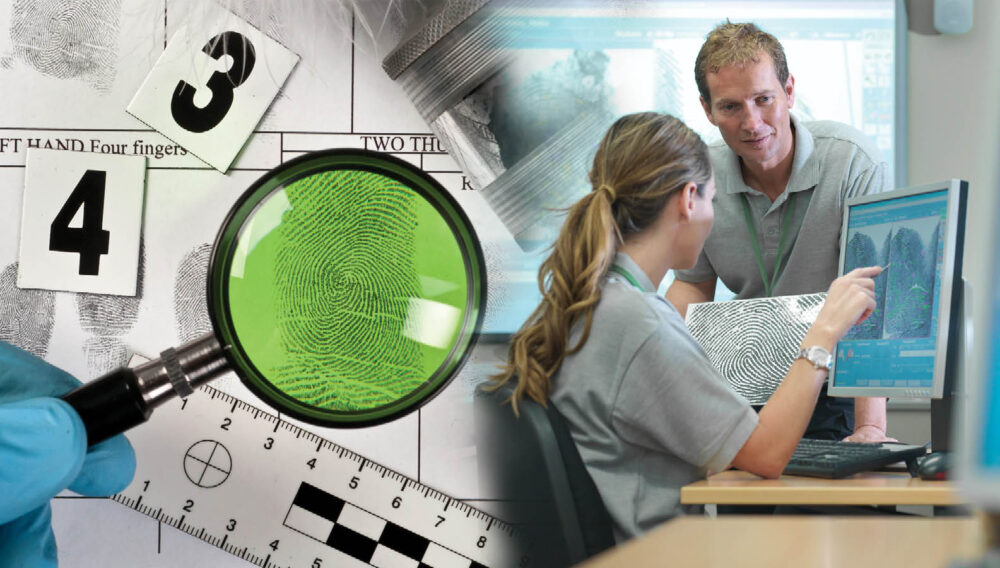The Ever-Evolving Field of Criminology

Criminology is a fast-changing field, with demand for expertise in the area continuing to grow. Our interconnected and mobile world, along with societal change and rapidly advancing technology, are influencing the nature of crime. Changes in its causes and consequences, perpetrators, and how law enforcement and legal systems respond are multiplying and coming faster than ever. Technical innovations are driving improved processes and policing.
Here’s a quick overview of how innovations in forensic science, and especially areas like digital forensics, cybercrime technology, and machine learning and artificial intelligence (AI), are transforming how crimes are investigated and solved. When considering what you can do with a criminal justice degree, understanding the trends can help you plan your future.
State-of-the-Art Technologies Used in Criminology
The field of forensic science has seen rapid advances and increasing use of technology across all areas. The innovations cover how evidence is identified, preserved, analyzed, and presented. Companies may use it to help recover from an attack. Prosecutors may use it to get perpetrators off the street. And it may be used to prevent future attacks.
Here are some of the newest innovations:
- IBIS (Integrated Ballistic Identification System) is a repository for sharing, comparing, and automating the identification of firearm and tool marks on ammunition.
- BPA (bloodstain pattern analysis) software helps investigators reconstruct crime scenes.
- LC-MS (liquid chromatography-tandem mass spectrometry) facilitates analyzing complex biological samples to identify the presence of drugs.
- Sensitive detection methods are able to find minute quantities of a wide variety of substances, even identifying specific genes.
- Nanotechnology is a related area for examining substances at a molecular level.
- Carbon dot powders use fluorescents to make it possible to see fingerprints under ultraviolet light, making low contrast and smudged prints easier to read.
- The Foldscope is a disposable paper microscope providing low-cost and portable field analysis for on-the-spot examinations.
- AI is used to detect fraud, embezzlement, insider trading, and other corporate white-collar crimes.
- Cloud forensics enables the collecting, sharing, and collaborative analysis of data and evidence.
- Blockchain technology to identify and trace transactions and digital assets is being used to fight fraud, money laundering, and ransomware.
- Quantum computing is in its infancy but presents powerful opportunities for decrypting data, performing advance simulations, and more.
Common Cybercrime Investigation Techniques and Tools
The explosion in the volume and types of cybercrime affects both businesses and their customers—and is a massive national security risk. Investigating cybercrime attacks involves advanced digital forensics and the collaboration of company staff and leaders, law enforcement agencies, and government regulators.
Digital forensics is the art and science of identifying a potential cybercrime, how it started, who perpetrated it, how it was done, and the impacts it had. Common tools include:
- Digital forensics software, such as EnCase, Forensic Toolkit (FTK), and Autopsy, for recovering data and analyzing exploits through metadata and network logs
- Network analytics such as Wireshark, tcpdump, and Netscout for monitoring traffic, dataflow, and patterns
- Malware tools like IDA Pro, OllyDbg, and Binary Ninja to reverse engineer malicious code and therefore understand how it works and possibly discover its source
- Password discovery utilities like Cain and Abel, John the Ripper, and Hashcat to get passwords out of encrypted files and databases
- Data recovery tools like EaseUS, Stellar, Disk Drill, and AnyRecover to recover from theft, sabotage, lockouts, and other data loss cyberattacks
- Social media tools like Hootsuite, Followerwonk, and Mention can track suspects’ posts and gather evidence
How Does Machine Learning and AI Contribute to Criminology?
Predictive policing is made possible through the adoption of machine learning to process massive volumes of data. Machine learning, which is a type of AI, can find patterns and connections in data and even make predictions and suggest probabilities to power preventative action. Machine learning tools never get tired and stay accurate as they churn through data. They perform tasks with speed and precision that humans could never match.
The top advantages of including machine learning in the digital forensics arsenal include:
- Accurate crime prediction to make it possible to efficiently allocate resources and stop crime before it starts
- AI used to slash the time it takes to investigate crimes, speeding up investigations and reducing labor costs
- Use of AI by medical examiners to pinpoint the cause and manner of death
- Faster and more precise DNA analysis
- Advanced video and image analysis, which make it possible to sort through millions of images and videos to capture potential perpetrators
- Predicting crowd behavior and managing crowd dynamics
- Effectively capturing data and evidence for successful prosecution of criminals
- Ultimately enhancing the safety of communities
Why Is Digital Forensics Important?
Technology advances in the field of criminology and innovation in digital forensics are revolutionizing how authorities prevent, discover, and solve crimes. Whether you work as a digital forensics analyst or other role in criminology or cybersecurity, having technology expertise is mandatory, and a background in computer science is invaluable.
For cybercrime and other kinds of criminal investigations, for preventing and recovering from attacks, and for providing evidence that could lead to the capture of bad actors, a career in criminology is both challenging and rewarding. And Excelsior University’s Bachelor of Science in Criminal Justice program opens the door to this dynamic and exciting field. You’ll learn about the latest tools and techniques to become a valuable member of any team. Starting your career here, you can make your mark in securing communities, advancing technology, and supporting justice.




